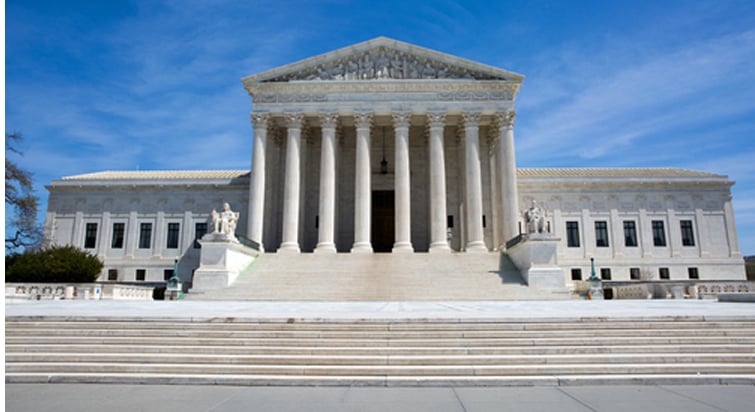Gorsuch joins liberal justices to strike law authorizing deportation for some 'crimes of violence'

A provision in a federal law authorizing deportation of immigrants convicted of a crime of violence is unconstitutionally vague, the U.S. Supreme Court ruled Tuesday in a 5-4 decision.
Justice Elena Kagan announced the judgment of the court. Her opinion was joined in full by Justices Ruth Bader Ginsburg, Stephen G. Breyer and Sonia Sotomayor, and partly joined by Justice Neil Gorsuch, who disagreed with Kagan’s discussion on the standard being used to assess the law.
The court struck down the second of two provisions of the Immigration and Nationality Act that define a “crime of violence,” which is one of the “aggravated felonies” for which an immigrant can be deported. The provision that was struck down says a crime of violence includes “any other offense that is a felony and that, by its nature, involves a substantial risk that physical force against the person or property of another may be used in the course of committing the offense.”
The court had previously struck down on vagueness grounds a similar provision of the Armed Career Criminal Act. Justice Antonin Scalia had written the previous decision, Johnson v. United States.
The court ruled Tuesday in the case of James Dimaya, an immigrant from the Philippines who was twice convicted of first-degree burglary under California law. Since 1992, Dimaya has not had any more scrapes with the law.
In his partial concurrence, Gorsuch said Dimaya was convicted of burglary under a California law that “applies to everyone from armed home intruders to door-to-door salesmen peddling shady products. How, on that vast spectrum, is anyone supposed to locate the ordinary case and say whether it includes a substantial risk of physical force? The truth is, no one knows. The law’s silence leaves judges to their intuitions and the people to their fate. In my judgment, the Constitution demands more.”
The case is Sessions v. Dimaya.
Related article:
Chemerinsky: Some potential blockbusters as new SCOTUS term gets underway”
Typo corrected in the second paragraph on April 18.



